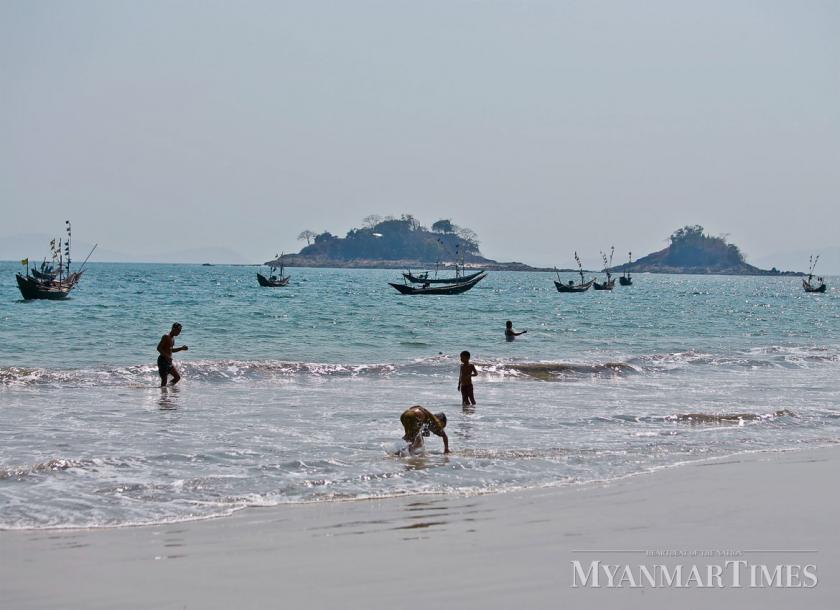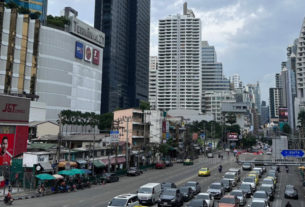
Myanmar Says Italian-Thai Development Breached Contract at Dawei SEZ
The Dawei Special Economic Zone (SEZ) Management Committee says it lost confidence in the consortium led by a Thai construction company due to breaches of contract at the mega project in southern Myanmar’s Tanintharyi Region.
Last week, Italian-Thai Development Public Co. Ltd. (ITD) announced that it received a notification of termination of its concession agreement to develop “the initial phase” of the SEZ from the management committee. The nine-project agreement included the construction of an industrial estate, a small port, liquefied natural gas terminal, power plants and telecommunications.
Deputy minister of electricity and energy Dr. Tun Naing, who also chairs the committee, told the media in Naypyitaw on Monday that the government lost confidence in the consortium “after repeated delays, continuing breaches of financial obligations under the contracts and failure to confirm financial capacity to proceed with development”.
“We lost business opportunities due to the inability to implement the project on time. We also lost potential Thai investment,” he said.
The long-delayed SEZ on the Andaman Sea aims to cross the isthmus by road into Thailand to the Gulf of Thailand, connecting the Indian and Pacific oceans.
The SEZ lies on the Japanese-led Mekong Southern Economic Corridor, which aims to connect central Vietnam, Cambodia and Thailand to Dawei.
The entire project stretches across 196-square-km and is expected to help firms currently transporting goods through the crowded Malacca Straits towards Singapore.
After its dismissal, ITD said it has prepared a letter challenging the committee’s allegations.
Dr. Tun Naing said any legal challenge will be met with “strong evidence” that the companies failed to fulfill their responsibilities.”
“We repeatedly informed the company it had not complied with the terms and conditions of the contract,” he said.
The deputy minister said the committee is expecting to settle the issue smoothly through mutual understanding.
It is the second time an IDT agreement over Dawei SEZ broke down. Originally backed by the Thai government, ITD was granted a 75-year concession to develop the site and attract investment to the SEZ in 2008 under Myanmar’s former military junta. It was expected to complete the project in 2015. However, IDT withdrew from the agreement in 2013 due to financial constraints.
In 2015, Myanmar renegotiated with ITD and its related companies to develop up to 27 square km of the estimated US$1-billion “initial phase” of the SEZ. Myanmar officially granted the contract to the consortium led by ITD in August 2015 and March 2016.
According to the committee, ITD in 2018 sought to renegotiate the agreement while both sides worked on land-lease negotiations. In 2019, the committee put forward the revised terms for the development of the industrial zone.
The committee said the consortium was required to remedy outstanding issues and demonstrate its financial capacity to proceed with the redefined industrial projects. However, the committee said the company failed to carry out the tasks and address financial issues.
Originally, Myanmar and Thailand agreed to split the project into phases but they agreed in October 2019 to implement the projects at the same time and invite third-party investment.
In late November, Japan officially joined Myanmar and Thailand in investing in the full implementation of the project. Japan also launched plans to carry out an environmental impact assessment and feasibility study, including on the deep-sea port.
Dr. Tun Naing said Myanmar had not held discussions with any other developers after the termination of IDT’s agreement and no plans have been made to call a new tender.
The deputy minister said the termination of the IDT contract did not affect collaboration with the Thai government at the Dawei SEZ.
Recently Myanmar, Thailand and Japan held meetings to discuss the Dawei development.
Source: https://www.irrawaddy.com/news/burma/myanmar-says-thai-firm-dawei-sez-breached-contract.html


